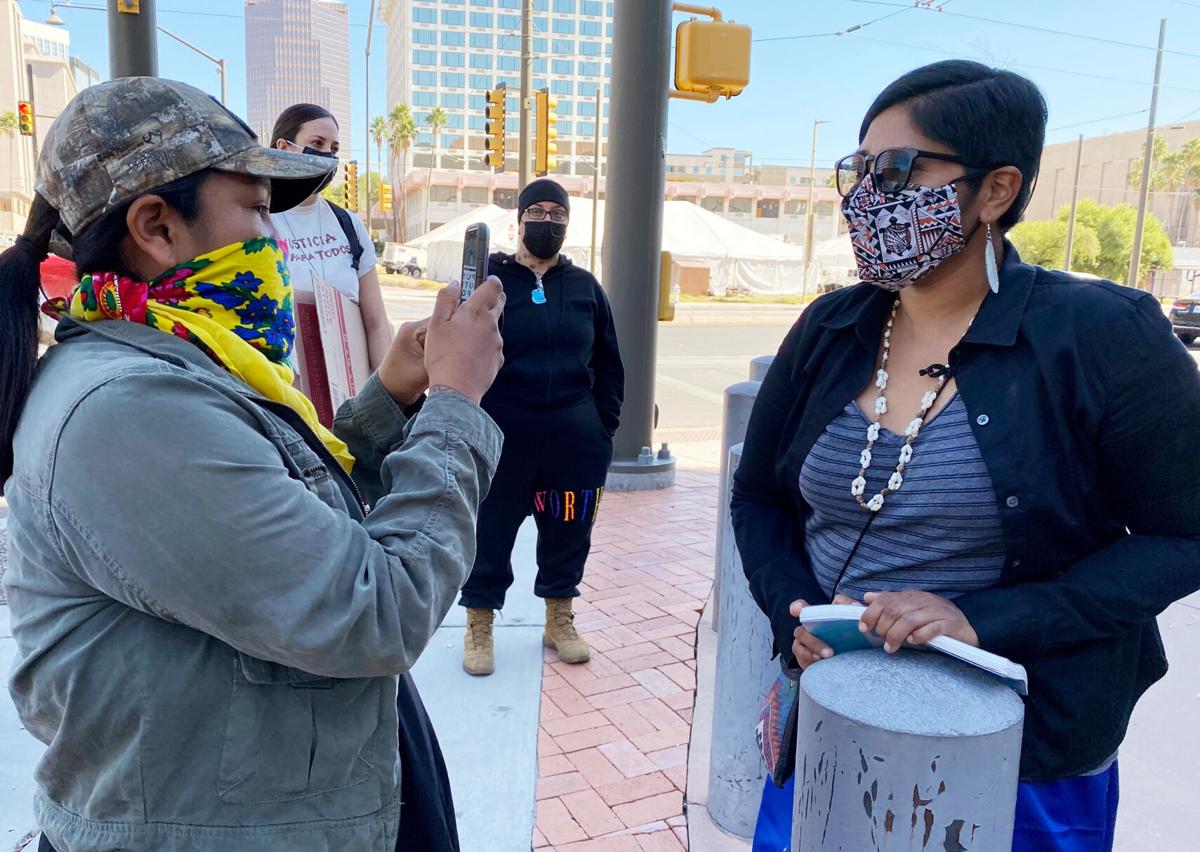A judge ruled that a Native American woman arrested for protesting the border wall on her tribe’s ancestral land can’t use federal law protecting religious freedom as her defense.
Tohono O’odham tribal member Amber Ortega was arrested after refusing to leave a construction site on Sept. 9, 2020, in Organ Pipe Cactus National Monument, about 150 miles southwest of Tucson, where contractors were building more than 40 miles of 30-foot-tall steel border wall.
The site is about one-eighth of a mile from Quitobaquito Springs, an ancient watering hole that’s sacred to the O’odham.
U.S. Magistrate Judge Leslie Bowman ruled that while the Religious Freedom Restoration Act does apply in Ortega’s case, she was unable to prove that the government imposed a “substantial burden” on her ability to exercise her religion.
The judge said she will not use either Ortega’s testimony regarding her religious beliefs nor the defense’s expert witness testimony in determining whether Ortega is guilty, but only for considering “purposes of motive and mitigation.”
The day Ortega was arrested, she had gone to the spring to sing and pray. When she heard the heavy machinery not far away, she ran to the construction equipment to stop what she considered desecration of sacred land, she testified during a Nov. 4 bench trial in U.S. District Court in Tucson.
The construction was taking place in an area that was temporarily closed, and a law enforcement ranger told her several times before arresting her that she had to leave or would be arrested.
Ortega was charged with interfering with agency function and violating a closure order, both misdemeanors.
Another Tohono O’odham woman, Nellie Jo David, was also protesting and arrested with Ortega that day. David accepted a plea agreement, which included probation and a $200 fine.
Bowman wrote that Ortega was “disturbed by the destruction and desecration of the land near the springs” and “spiritually wounded by the knowledge that the border wall was going to interrupt access of tribal members to their ancestral lands.”
But she concluded Ortega was unable to prove the government imposed a substantial burden on her religious activities because she had access to Quitobaquito Springs, which was not subject to the closure order.
At one point, tribal members didn’t have access to the spiritual site because of the construction, but after a protest, the work stopped and they were allowed access to the site through an application process, according to court records.
Parts of the site were bulldozed during construction, which caused a lot of damage, including the loss of medicinal plants and a drop in the water level of the spring, court records say. The tribe is now working with Organ Pipe to repair the spring area and the water level is returning.
“Construction of the border wall raised painful memories of the harms suffered by native people at the hands of the government throughout history,” the judge wrote. “Ms. Ortega’s testimony was emotional and heartfelt. There is no question that her suffering is genuine and is rooted in her sincerely held religious beliefs. However, the defense was unable to prove that on 9/9/20 the closure order and the ranger’s lawful order that Ms. Ortega leave the construction zone imposed a substantial burden on her ability to engage in her religious activities.”
The judge hasn’t issued a verdict in the case because the government asked the court to stay any determination of guilt or innocence if it allowed any evidence of the Religious Freedom Restoration Act defense. The judge said she will likely issue a verdict on Dec. 15.





